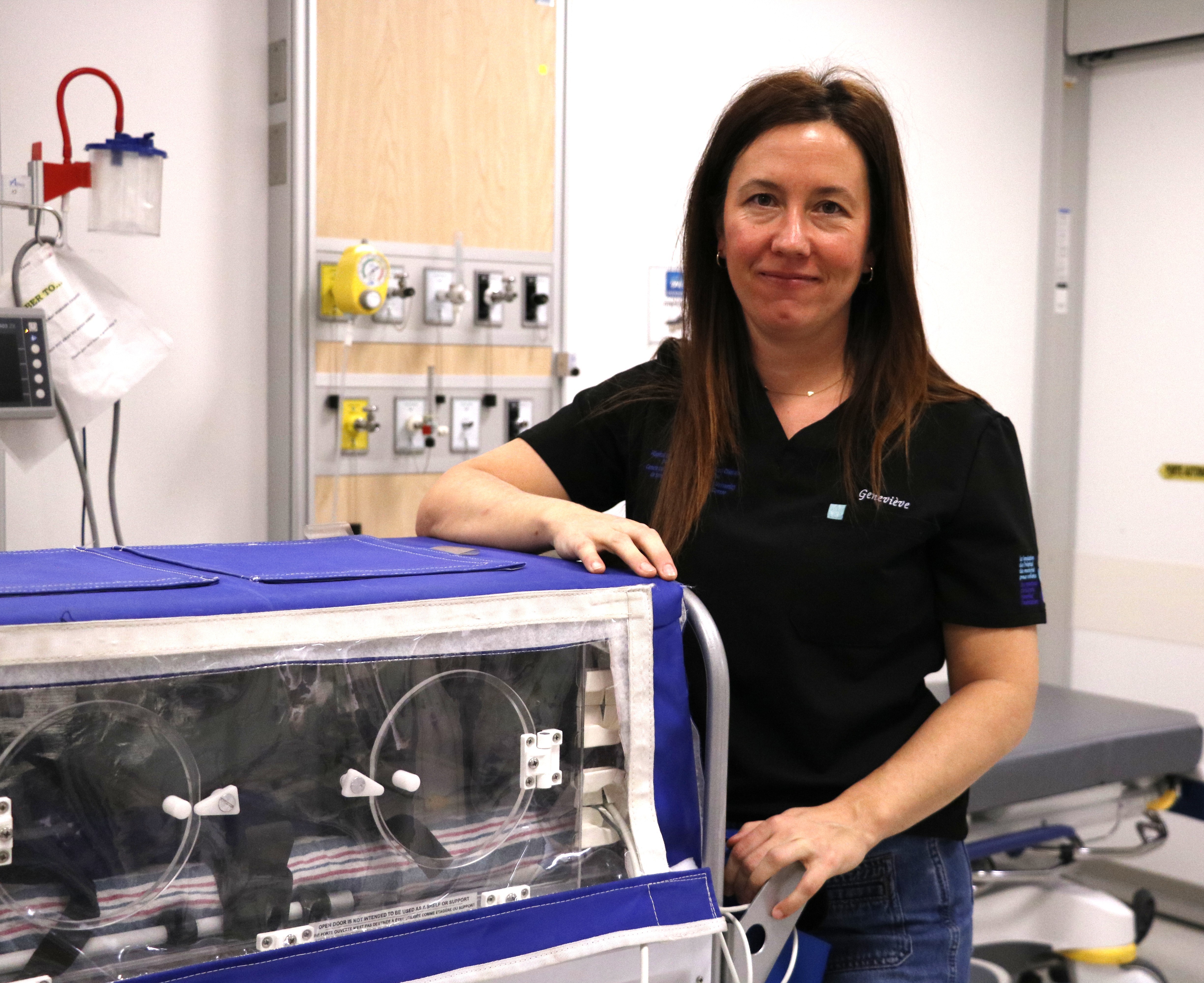
Celebrating Critical Care Transport Nurses at the MCH
18 February 2026
Rise in respiratory infections and measles outbreak: important infection prevention measures at the Montreal Children’s Hospital.
Read moreWelcome to the Montreal Children's Hospital

3 February 2014
From the time she was born and diagnosed with a complex congenital heart problem, Sabrina Bigras’ parents understood that her condition would require specialized follow-up care for the rest of her life.
Sabrina’s health care journey at the McGill University Health Centre (MUHC) began when she was two years old when she and her parents met Dr. Marie J. Béland, a pediatric cardiologist at the Montreal Children’s Hospital (MCH). In many ways, Dr. Béland would come to play a significant role in Sabrina’s and her family’s life.
“Dr. Béland was always reassuring,” says Sabrina, whose cardiac condition required multiple operations, hospitalizations and complex follow-up care that continues to this day. When she was just four years old, Sabrina was implanted with a pacemaker device to help control her abnormal heart rhythm. Sabrina would visit Dr. Béland and the cardiology team at the Children’s at least twice a year to have her pacemaker tested, and undergo routine x-rays and ultrasounds.
“A few years ago, the team started talking more regularly about my eventual transition to an adult hospital,” says Sabrina.” The conversations covered the next steps in her transition and introduced her to the McGill Adult Unit for Congenital Heart Disease Excellence (MAUDE Unit) of the RoyalVictoriaHospital where she would be seen after turning 18. While she was initially a little bit worried about making the change, Sabrina was eventually reassured by the fact that she knew what to do.
Preparing for transition: a carefully orchestrated process
“The last visit to the pediatric cardiologist prior to an upcoming transfer to adult care can sometimes be a very overwhelming, emotional experience for the patients, their parents, and even the doctors and nurses”, says Dr. Béland. “We really do develop connections with each family, because we go through quite a journey together.”
The team’s informative approach to transition, however, helps empower young patients by encouraging them to play a more active role in their care plans. Through open dialogue, the team ensures that patients and their parents feel well supported in their transition.
“My goal is to have my patients leave the Cardiology Division at the Children’s knowing their diagnosis and being able to explain it to me,” says Dr. Béland. “To mark their graduation from pediatric care, patients leave the last appointment at the Children’s with a card in hand detailing their diagnosis and listing their cardiac interventions. They are also given a pamphlet describing the MAUDE Unit and an appointment date and time for their first visit there.” A detailed written summary is then sent to the MAUDE Unit and a file is opened there in anticipation of the patient’s first visit.
The MAUDE Unit, named in tribute to congenital heart disease pioneer and McGill professor Maude Abbott, was created in 2000 in partnership with the Montreal Children’s Hospital to provide a unique range of services to meet the needs of patients once they reach adulthood. “More than 20 physicians and surgeons, along with nurses, professionals and support staff from a wide range of medical specialties work together in the MAUDE Unit to help make the transition from pediatric care a smooth one,” says Dr. Ariane Marelli, Cardiologist and Founding Director of the MUHC’s MAUDE Unit. “This unique pediatric-to-geriatric care model distinguishes truly distinguish the MUHC as a model for caring for patients with congenital heart disease.”
Sabrina’s transition was going smoothly but with only three months to go before her 18th birthday, she was hospitalized and diagnosed with a pulmonary embolism, otherwise known as a sudden blockage of an artery in the lung.
Given the complexity of her medical condition, the thought of leaving the Children’s in just a few short months was a scary one for the recent high school graduate, but her team at the Children’s ensured that she was well supported, informed and aware of her health plan for the future.
This past fall, Sabrina completed her first visit to the MAUDE Unit with Dr. Natalie Bottega. She looks forward to developing a stronger relationship with the team. One of the greatest challenges, she admits, is slowly taking on more responsibility for coordinating her appointments and blood work on her own.
“I still rely on my mom for a bit of guidance,” she says, admitting that the transition involves much more than moving from one hospital to another. “It’s a work in progress and I think it will take some time, but I feel confident that I’ll become more familiar with it,” she says.
Key adjacencies at the Glen will make transition seamless
Looking ahead, the move to the new McGill University Health Centre in 2015 will help simplify the process for patients transitioning to the MAUDE Unit since the pediatric Cardiac Diagnostic Centre will be located just down the hall. This key adjacency will ensure that patients are seen just steps from where they were treated by pediatric specialists for their entire lifetime, thereby greatly reducing the stress and anxiety associated with visiting a new hospital setting.